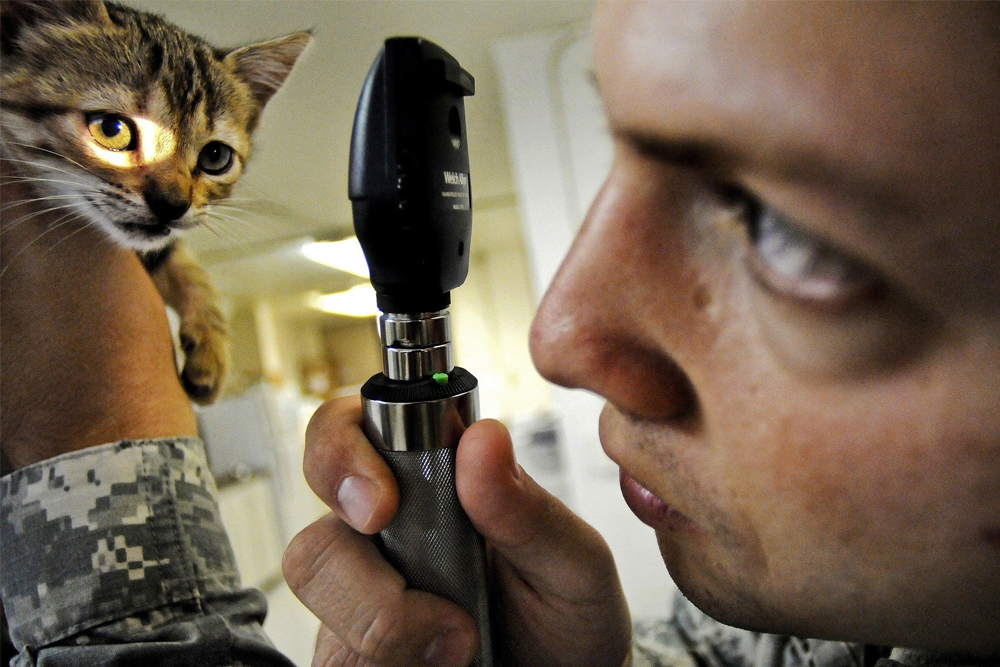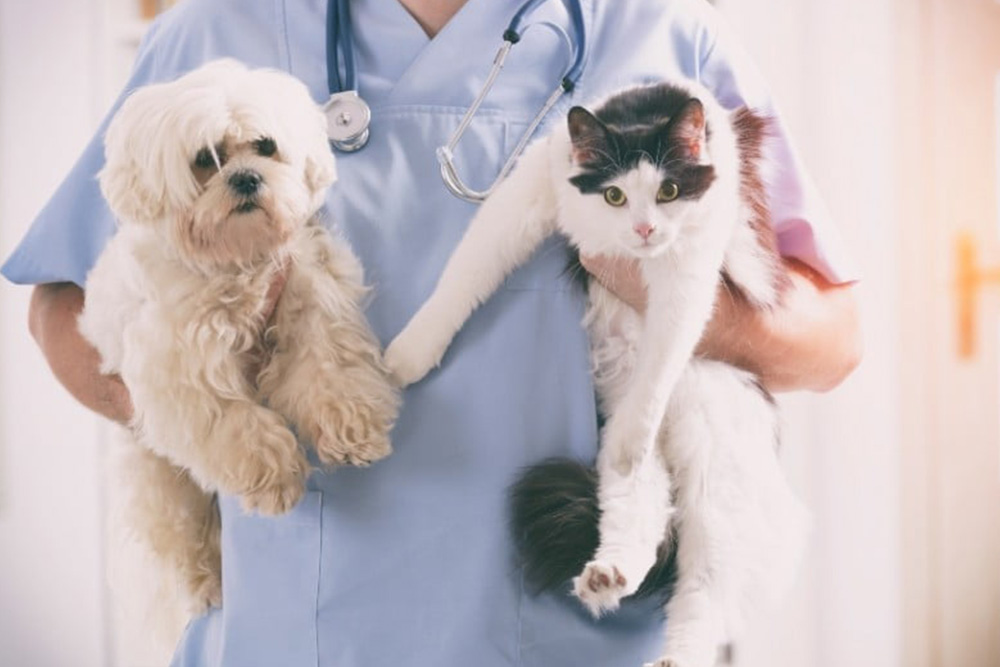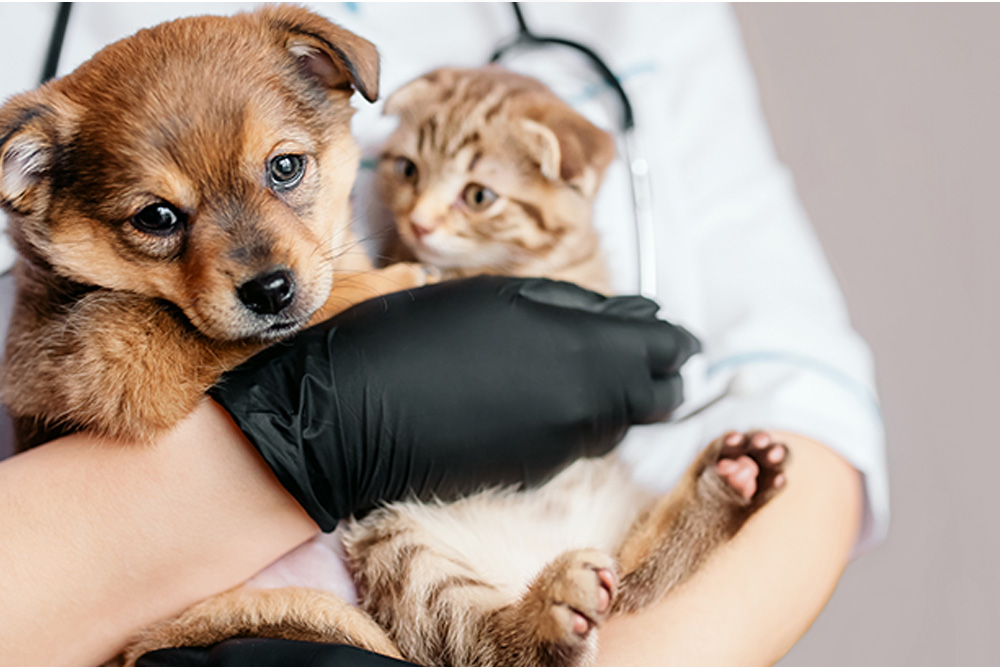Check your pets health before it’s too late – use our health checklist

As a pets owner, ensuring the health and wellbeing of your furry friend is a top priority. One of the most important aspects of pet care is vaccination and deworming. Vaccinations protect pets from a variety of diseases, while deworming helps prevent intestinal parasites that can cause illness and other health problems. Understanding the importance of vaccination and deworming is crucial to keeping your pet healthy and happy. In this blog post, we will discuss the importance of vaccination and deworming and provide some tips on how to ensure that your pet remains protected against disease and parasites.
Related articles
1- Treat Your Pet Like Family: 10 Fun Activities to Do Together
2- Keep Your Pet Healthy and Happy with Regular Veterinary Check-ups
3- How to Keep Your Pets Mind Sharp with Unique Games and Foods!
4- From Fat to Fit: Home Exercises for Your Obese Pet
So, if you want to learn more about how to keep your pet healthy and protected, read on!
Understanding your pet’s
needs is crucial to providing them with a happy and healthy life. Pets have their own unique personalities and preferences, and it’s important to take the time to get to know your pet and their individual needs.
One of the most basic needs of any pet is proper nutrition. Different pets have different dietary requirements, so it’s important to feed your pet a diet that is appropriate for their species, age, and health condition. For example, dogs and cats have different nutritional needs, and a senior pet may require different types of food than a younger pet.
Another important aspect of pet care is exercise. Dogs, for example, need regular exercise to maintain their physical and mental health. A lack of exercise can lead to obesity, behavioral issues, and other health problems. Cats also need exercise, but they may prefer to play indoors rather than go for walks like dogs.
Proper nutrition is essential for the health and wellbeing of your pet
Giving your pet the right food in the right amounts can help prevent health problems, maintain a healthy weight, and keep your pet feeling energetic and happy.
Different pets have different nutritional needs, so it’s important to feed your pet a diet that is appropriate for their species, age, and health condition. For example, dogs and cats have different dietary requirements, and a senior pet may require different types of food than a younger pet.
When choosing a pet food, it’s important to look for high-quality ingredients that provide a balanced mix of protein, carbohydrates, and fats. Many pet foods also contain added vitamins and minerals to ensure that your pet is getting all the nutrients they need.
It’s important to follow the recommended feeding guidelines on the pet food label, as overfeeding can lead to obesity and other health problems. However, it’s also important to monitor your pet’s weight and adjust their food intake as needed. If you notice that your pet is gaining or losing weight, talk to your vet to determine the appropriate amount of food to feed them.
In addition to choosing the right pet food, it’s important to avoid giving your pet table scraps or human food, as these can be high in fat and calories and may not provide the nutrients your pet needs. Some human foods can even be toxic to pets, such as chocolate, onions, and grapes.
It’s also important to provide your pet with a safe and comfortable living environment. This includes providing them with a clean and cozy bed, toys to play with, and a designated space for them to eat and drink. If you have a dog, you may also need to provide them with a secure outdoor space to play and exercise.
Regular visits to the vet are also essential to keeping your pet healthy.
Your vet can provide preventative care, such as vaccinations and regular check-ups, as well as diagnose and treat any health issues your pet may have.
Regular physical activity is important for the health and wellbeing of pets, just as it is for humans. Exercise can help maintain a healthy weight, improve cardiovascular health, and reduce the risk of certain diseases. In addition, exercise can help reduce stress and anxiety in pets, and can provide mental stimulation and socialization opportunities.
There are many ways to encourage physical activity in pets. Here are some tips:
Take your dog for regular walks or runs. This is a great way to get both you and your pet moving. You can gradually increase the distance and intensity of your walks or runs to challenge your dog and keep them engaged.
- Play games with your pet. Toys such as balls, frisbees, and tug ropes can provide a fun and interactive way for your pet to get exercise. You can also play hide-and-seek or other games that engage your pet’s mind and body.
- Consider enrolling your pet in a dog sport or agility class. These classes provide structured exercise and training opportunities that can be both physically and mentally stimulating for your pet.
- Provide your cat with toys that encourage movement. Toys such as laser pointers, feather wands, and interactive puzzles can provide a fun and engaging way for your cat to get exercise.
- Consider investing in a pet treadmill or indoor activity center. These can provide a convenient way for your pet to get exercise, especially during inclement weather or when you are unable to take them outside.
If you have a backyard, provide your pet with a safe and secure outdoor space to play and explore. Make sure the area is fenced and free of hazards such as toxic plants or sharp objects.
It’s important to remember that different pets have different exercise needs, so it’s important to talk to your vet about the appropriate level of activity for your pet. Additionally, it’s important to gradually increase the intensity and duration of exercise, especially if your pet is not used to regular physical activity.
Maintaining good hygiene
is important for the health and wellbeing of pets. Proper hygiene practices can help prevent the spread of disease, reduce the risk of infections, and keep your pet looking and feeling their best.
Here are some steps you can take to maintain good hygiene for your pet:
- Regular grooming: Regular grooming is important for pets, especially those with longer hair or fur. Brushing your pet’s coat can help remove dirt and debris, and also prevents matting and tangling. Bathing your pet with a pet-specific shampoo can also help keep their coat clean and healthy.
- Dental care: Dental care is important for pets, as dental problems can lead to infections and other health issues. Brushing your pet’s teeth regularly with a pet-specific toothpaste can help prevent tartar build-up and keep their teeth and gums healthy.
- Ear care: Regular ear cleaning is important for pets, especially those with floppy ears or hair in their ears. Use a pet-specific ear cleaner to gently clean your pet’s ears and prevent infections.
- Nail trimming: Keeping your pet’s nails trimmed is important for their comfort and mobility. Long nails can cause discomfort and even lead to injury. If you’re not comfortable trimming your pet’s nails, a professional groomer or veterinarian can do it for you.
- Regular veterinary check-ups: Regular veterinary check-ups are important for your pet’s overall health and wellbeing. Your vet can provide preventative care, such as vaccinations and regular check-ups, as well as diagnose and treat any health issues your pet may have.
- Clean living environment: Keeping your pet’s living environment clean is important for their health and wellbeing. Regularly clean your pet’s bedding, food and water bowls, and litter boxes to prevent the spread of bacteria and parasites.
- Flea and tick prevention: Fleas and ticks can cause a variety of health problems for pets, including skin irritation, anemia, and even disease. Use a preventative flea and tick treatment recommended by your veterinarian to keep your pet protected.
Vaccination and deworming are important aspects of pet care.
Vaccinations protect pets from various diseases, while deworming helps prevent intestinal parasites that can cause illness and other health problems. It’s important to stay up-to-date with your pet’s vaccination and deworming schedule to ensure they remain healthy and protected.
Here are some important considerations for vaccination and deworming:
- Talk to your veterinarian: Your veterinarian can recommend a vaccination and deworming schedule that is appropriate for your pet’s age, breed, and lifestyle. They can also advise you on any potential risks associated with vaccinations and deworming.
- Keep records: Keep a record of your pet’s vaccinations and deworming treatments, including the dates and types of vaccines and dewormers used. This will help ensure that your pet remains up-to-date on their vaccinations and deworming treatments.
- Follow the recommended schedule: Vaccinations and deworming treatments are often given at specific intervals to ensure maximum protection. Follow the recommended schedule to ensure that your pet remains protected against disease and parasites.
- Watch for side effects: Some pets may experience mild side effects after receiving vaccinations or deworming treatments, such as lethargy or a mild fever. However, if your pet experiences more severe symptoms such as vomiting, diarrhea, or difficulty breathing, contact your veterinarian immediately.
- Risks of not vaccinating or deworming: Not vaccinating or deworming your pet can put them at risk for a variety of health problems, including infectious diseases and parasitic infections. Some of these diseases can be life-threatening, so it’s important to keep your pet up-to-date on their vaccinations and deworming treatments.
Staying up-to-date with your pet’s vaccination and deworming schedule is essential to their health and wellbeing. Talk to your veterinarian, keep records, follow the recommended schedule, watch for side effects, and be aware of the risks of not vaccinating or deworming your pet. By taking these steps, you can help ensure that your pet remains healthy and protected against disease and parasites.
Taking care of a pet requires a lot of responsibility and attention to detail. We have discussed several important aspects of pet care, including understanding your pet’s needs, providing them with proper nutrition, encouraging physical activity, maintaining good hygiene, and staying up-to-date with vaccination and deworming schedules.
By following these tips, you can help ensure that your pet remains healthy and happy for years to come. Remember to talk to your veterinarian, keep records, and be aware of any potential risks associated with pet care.
If you found these topics helpful and informative, be sure to check out our other articles on pet care. We have a variety of resources to help you keep your pet healthy and happy, from nutrition to behavior to training. Thanks for reading, and happy pet parenting!
Sobre o Autor




0 Comentários